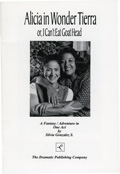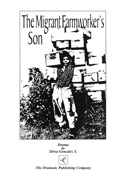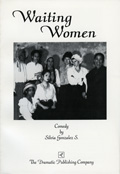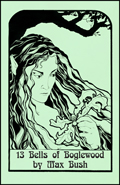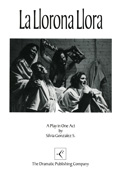
La Llorona Llora
- One Act, Fantasy
- 1M, 3F
- ISBN: L82
The La Llorona story is similar to the Greek Medea myth. La Llorona means "woman who cries." Though there are variations to this story, the oldest oral versions can be traced to the 1500s, when the Spanish conquistadors took the country now called Mexico.
Description
- One Act
- Fantasy
- 20 minutes
- Target Audience: Teen (Age 14 - 18), Adult
- Set Requirements: Bare Stage/Simple Set
- Performance Group:
- Community Theatre, College Theatre / Student, High School/Secondary
In this play, a Spaniard, who has lived peacefully in the jungles with his new family, must return to Spain. He plans to take his wife and children with him, but his relatives in Spain won't hear of it. They consider the Indians worthless savages with no place in their society. After some debate, his family consents to his bringing only the children since they, at least, are half Spanish. The soldier tells his Indian wife of his plan and that because his family does not recognize their marriage, they have chosen a bride for him in Spain.
Devastated and crazed that her children are to be taken away, La Llorona kills them so her husband cannot have them. Realizing what she has done, she runs through the streets screaming and crying. The Spaniard returns home, disconsolate.
Characters
- Casting: 1M, 3F
Available Material
| Name | Price |
|---|---|
|
La Llorona Llora Script
Order Now
The La Llorona story is similar to the Greek Medea myth. La Llorona means woman who cries. Though there are variations to this story, the oldest oral versions can be traced to the 1500s, when the Spanish conquistadors took the country now called Mexico. They married the Indian women and were very proud of their offspring, aware they were starting a new breed. In this play, a Spaniard, who has lived peacefully in the jungles with his new family, must return to Spain. He plans to take his wife and children with him, but his relatives in Spain won't hear of it. They consider the Indians worthless savages with no place in their society. After some debate, his family consents to his bringing only the children since they, at least, are half Spanish. The soldier tells his Indian wife of his plan and that because his family does not recognize their marriage, they have chosen a bride for him in Spain. Devastated and crazed that her children are to be taken away, La Llorona kills them so her husband cannot have them. Realizing what she has done, she runs through the streets screaming and crying. The Spaniard returns home, disconsolate. Bare stage with props. |
$19.95 |
